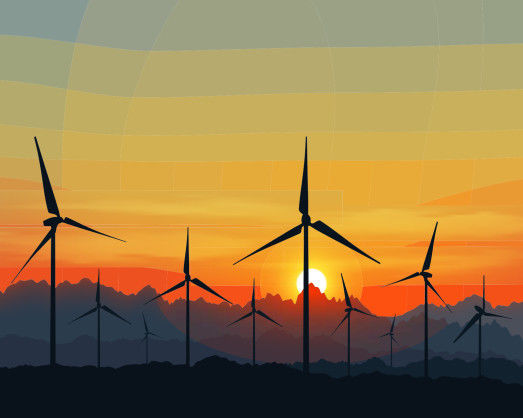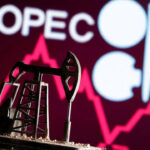
Anibor Kragha, a former Chief Operating Officer (COO) in charge of Refining and Petrochemicals, Nigerian National Petroleum Company Limited, is currently the Executive Secretary of the African Refiners and Distributors Association (ARDA). In this interview with KINGSLEY JEREMIAH, the renowned oil and gas expert discusses critical issues in the industry, including the differences in taxes, regulations, subsidies and their impacts on African cross-border trade. He also looks at high sulphur fuels, funding of downstream infrastructure, energy security and the growing need for the energy transition.
Most countries in Africa are currently indebted even as the cost of borrowing keeps rising. Do you think the continent needs to borrow more to transit to net-zero?
Africa needs to develop its own unique, sustainable Energy Transition Plan that balances the continent’s energy security needs with the broader global net-zero ambitions. For example, Nigeria has pledged to achieve net-zero by 2060 and has laid out Nationally Determined Contributions (NDCs) to accomplish this target.
While laudable, key projects targeted at carbon adaptation and mitigation must be financed for Nigeria and other African countries to achieve their net-zero ambitions. On behalf of ARDA, I participated in several panels with major global stakeholders at COP 27 in Egypt last year that focused on a just transition and adaptation finance to achieve these net-zero ambitions. The sessions and others at COP 27 laid out the challenges for a just transition and proffered financing solutions for Africa.
At COP 26 in 2021, South Africa executed a $8.5 billion Just Energy Transition in partnership with France, Germany, the United Kingdom, the United States and the European Union to support its decarbonisation efforts. The partnership is aimed at accelerating the decarbonisation of the South African economy, with a focus on its electricity system, to help the country achieve the ambitious goals set out in its NDC emissions goals. South Africa, in turn, shared the details of its decarbonisation plans at COP 27 in 2022 in line with the partnership’s funding obligations.
Nigeria and other African countries can use the South African model to secure the funding required to execute their respective NDCs to achieve their net-zero ambitions. COP 28 holds in Dubai, UAE at the end of this year and ARDA plans to engage with the COP 28 organisers to showcase opportunities for decarbonisation of refineries and other downstream assets to secure critical funding for its members for the execution of critical projects in line with the African Downstream Energy Transition Roadmap.
But whether these projects are financed externally as part of a just transition or funded by African states through debt, the key is that the projects are bankable – well documented, with strong compliance to global business standards, including on accreditation of carbon credits, with a full appraisal of risk, rewards and returns. Defining what makes a successful project in this challenging financing environment, and helping our members achieve this, will be an increasing focus of ARDA’s activities in the future.
What would you say are your achievements since you assumed office as the Executive Secretary of ARDA and what plan do you have going into the future?
ARDA, created in 2006 as the African Refiners Association (ARA), promotes sharing of technical and commercial best practices amongst African refiners and their stakeholders. ARDA, which currently has 74 members in 52 African countries, is based in Abidjan, Cote d’Ivoire and focuses on addressing the economic, environmental and social issues that impact oil refining and importation and distribution of petroleum products across the African continent.
Given my previous role as COO at NNPC in charge of refining and petrochemicals from 2016 to 2019, I served first on the ARDA Executive Committee and then as ARDA President from 2019 to 2020 ahead of taking on my first three-year term as ARDA Executive Secretary from April 2020 to March of this year. After taking on the Executive Secretary role at the start of the COVID-19 pandemic, I was successfully re-elected for a second three-year term at the ARDA annual meeting in March 2023.
I believe that, with the strong support of the ARDA President, the ARDA Executive Committee, members and key partners and other stakeholders, I was able to lead ARDA to accomplish three main objectives.
We used the challenge of the global COVID-19 pandemic to re-assess our operating model and develop a five-year strategic plan that focused on implementing ARDA’s Vision of serving as the leader for Africa’s transition to cleaner fuels and later, towards renewable energies. To accomplish this, ARDA reorganized and expanded its Work Groups (WGs) from five to seven – refining and specifications, storage and distribution, human capital, regulation, HSE and quality (HSEQ), LPG and Sustainable Financing (SF) – with the last three (HSEQ, LPG, SF) being new WGs aimed at introducing the broader global focus on environmental, social and corporate governance (ESG) frameworks, cleaner transition fuels and climate financing to the association’s members and stakeholders.
Also, we have expanded our pan-African and global collaborations to promote pan-African energy security, a topic that has become increasingly important over the last year given the adverse impact of the Russia-Ukraine conflict on global petroleum products supply chains.
ARDA has expanded its cleaner fuels agenda to promote the African Downstream Energy Transition Roadmap focused on ensuring that our members and key stakeholders have access to transition funding to implement their business plans in a global environment pivoting away from fossil fuel projects. Anchored on Africa’s population growth over the next few decades and the continent’s position as the lowest contribution to cumulative global CO2 emissions, ARDA is promoting the development and implementation of a unique, sustainable African Downstream Energy Transition Roadmap and associated Finance Plan that focuses on cleaner transport and cooking fuels first and the adoption of mature, cost-effective renewable energy solutions later. The roadmap has the ultimate goal of enabling the execution of carbon emissions reduction and other projects that will generate carbon credits and result in an African, world-class carbon credits trading market.
ARDA is currently working on two funding options for the downstream segment of petroleum. Why is this critical and how will it impact African energy security?
ARDA is promoting the African Downstream Energy Transition Roadmap to ensure that its members and key stakeholders have access to transition funding to execute their business plans.
As such, ARDA is promoting two funds – one for refinery upgrades to produce cleaner fuels, storage and distribution infrastructure and petrochemicals projects and the other fund is dedicated to African LPG Sector Development.
ARDA and the African Union Commission conducted a study, funded by NNPC Limited, Trafigura and the Dangote Refinery, that determined that the cost of upgrading African refineries to produce cleaner, AFRI-6 (10 ppm sulphur) fuels were about $15.7 Billion (+/-50%).
As such, ARDA is proposing the development of the first fund for bankable downstream projects across Africa, including refinery upgrade projects that deliver cleaner fuels while reducing the refineries’ carbon emissions and the continent’s petroleum products importation. In addition, strategic, preferably regional storage and distribution infrastructure investments and petrochemicals projects will be considered for their value addition.
ARDA and the Global LPG Partnership (GLPGP) and a leading African bank proposed the Africa LPG Sector Development Fund in 2021 to deploy financing for the rapid scale-up of clean cooking with LPG in sub-Saharan Africa. The purpose of the fund is to provide a critical mass of technical advice and financing for qualified countries via their national LPG sector ecosystems. Given that gas is now viewed as an essential transition fuel, ARDA and GLPGP are now promoting the fund with key African Development Finance Institutions for the execution of LPG and bio LPG projects, the latter having the benefit of attracting carbon credits to aid financing.
A new government is expected to take over in Nigeria a few days from now. What will be your advice on how to address downstream challenges and move the oil and gas sector forward?
ARDA is a non-governmental organisation, but our association is proud to have many Nigerian members, including NNPC Limited, Nigeria Midstream and Downstream Petroleum Regulatory Authority (NMDPRA), Sahara Group and Rainoil Limited that currently serve on the ARDA Executive Committee. As such, ARDA is fully committed to supporting the Nigerian downstream sector, especially given that the country is the largest importer of petroleum products in Africa.
Nigeria can leverage the energy transition to build robust new business models. First, existing Downstream assets need to be decarbonised to future-proof their operations and extend their license to operate. The carbon footprints of the refineries and other downstream assets need to be reduced significantly, carbon emissions from refineries can be captured and used for other applications and more energy-efficient sources can be used for operations. Carbon abatement projects, like the SIR project mentioned earlier, can also be executed to generate carbon credits.
Second, Nigeria must continue to invest in value-added petrochemical projects as well as lower-carbon energy infrastructure projects like gas pipelines and LPG infrastructure that will help develop the country’s regional trade within the West African sub-region as well as boost product exports. Third, Nigeria can invest in renewable energy solutions, especially solar energy to decarbonize downstream assets’ operations and push for the production of green hydrogen from its refinery and other assets.
In respect of the removal or reduction of gasoline subsidies, this is a political decision for the new administration. ARDA’s policy for over two decades has been to promote an efficient and economic regional petroleum product supply chain – and such a policy requires regional harmonisation of subsidies, taxes and duties on fuels to avoid illegal cross-border activities.
OPEC, ARDA and APPO are also working closely on the energy outlook in Africa. What do you plan to achieve through this collaboration?
The OPEC-Africa Energy Dialogue, a collaboration amongst OPEC, the African Union Commission’s Department of Infrastructure and Energy, the African Petroleum Producers Organization and ARDA was initiated by the late Secretary-General of OPEC, Mohammad Sanusi Barkindo, to promote open and transparent discussions on key energy-related topics relevant to Africa and its energy industries.
The OPEC-Africa Energy Dialogue has held two highly successful High-Level Meetings, first in June 2021 and again in February 2023 that have focused on key discussions on topics that included energy investment and finance in Africa, the just energy transition, energy poverty and the way forward for the OPEC-Africa Dialogue.
ARDA’s objective is to continue to collaborate positively with the other members of the OPEC-Africa Energy Dialogue toward the development of a robust, pan-African oil and gas industry that focuses on balancing maximizing the significant potential of the continent’s oil and gas sector to meet Africa’s growing energy demands as our industry progresses towards a lower-carbon future.
There’s an existing collaboration between ARDA and AU to ensure cleaner fuel on the African continent. What’s the update on this project?
Across Africa, there are 11 different permissible grades of gasoil/diesel ranging from 10 ppm to 10,000 ppm sulphur and 12 different permissible grades of gasoline ranging from 10 ppm to 2,500 ppm sulphur. This situation has adversely impacted regional trade and the implementation of pan-African regulatory frameworks to promote investments.
To address this, ARDA and the African Union Commission (AUC) have been collaborating since 2019 on the adoption of harmonized, pan-African standards for cleaner fuel specifications (AFRI-6 or 10 ppm sulphur) by 2030 to promote clear health and socio-economic benefits. Since 2019, ARDA and the AUC have held several stakeholder meetings, including several virtual forums in 2020 during the COVID-19 pandemic to review the proposed AFRI Clean Fuels Roadmap in line with the AUC processes.
Presently, we are awaiting the final review and approval of the Clean Fuels Roadmap by the AUC Permanent Representative Council. We are very optimistic that the process will be concluded this year.





